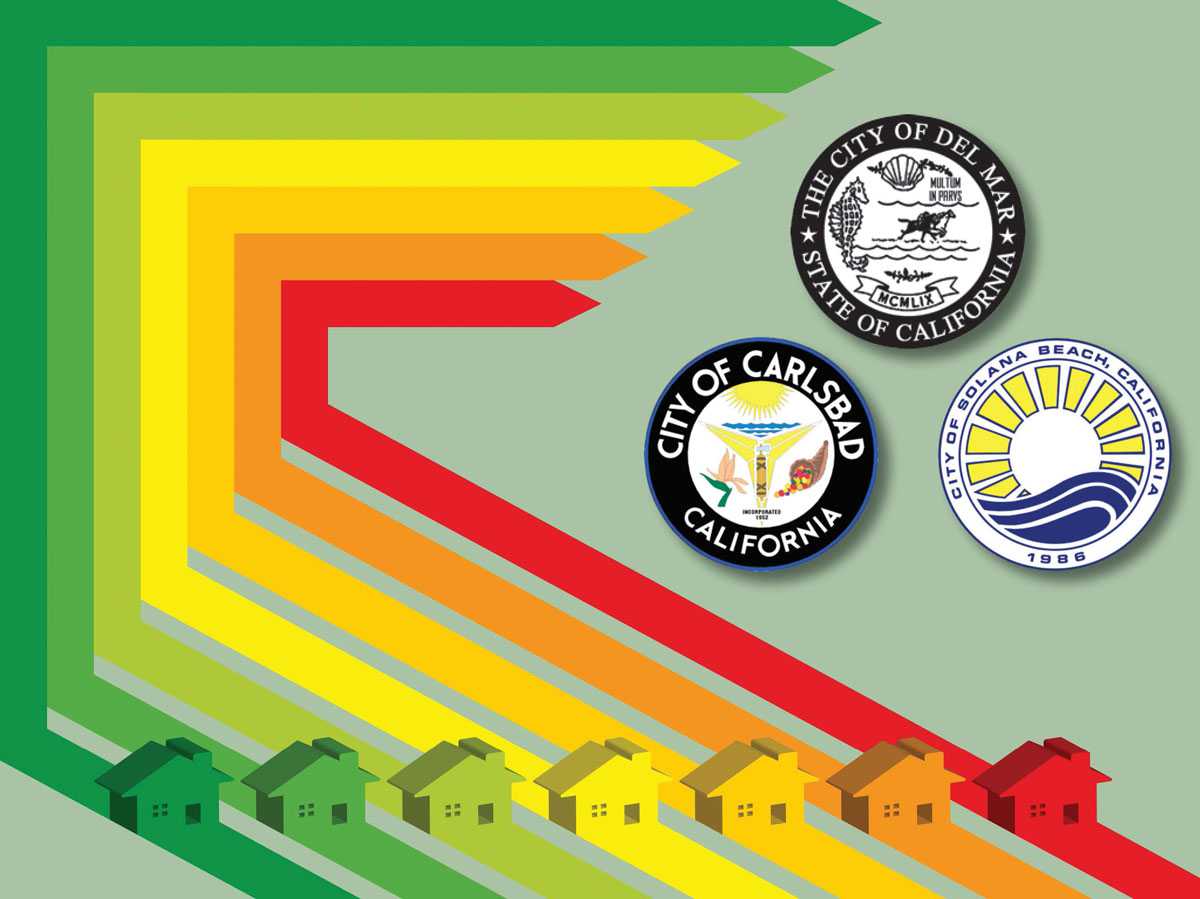Clean Energy Alliance talks energy rates, power supply options

Image: Collected
Residents of Del Mar, Solana Beach and Carlsbad received the first look at energy rates they'll receive after the Clean Energy Alliance’s (CEA) launch in May and power supply options their cities will need to choose from.
Throughout a regular meeting of the CEA board, it had been announced the original rates will be set at a level sufficient to make sure enough revenue to invest in the power supply, make debt payments and administrative costs and set up a 5% operating reserve.
Directly comparing their rates to current SDG&E rates, the board established their summer rate at $.12627 per kilowatt-hour (kWh) with their winter rate at $.04600 per kWh. CEA says these rates are less than current SDG&E rates with distinctions around 25% and 47% for the wintertime and summer rates respectively.
These are not the savings that customers within the brand new CEA will see after its launch. SDG&E will also be taking monthly “exit fees” from customers automatically signed up for the CEA.
“SDG&E has made contracts and commitments assuming they would be serving the customers in Carlsbad and Del Mar [and Solana Beach],” said the board’s Interim CEO Barbara Boswell. “They now have these contracts without customers plus they have to be liquidated on view market.”
These service fees are charged monthly to CEA customers on a per kWh basis and so are another line item on their monthly power bill. For Carlsbad and Del Mar residents that rate is likely to be $.03769 per kWh.
Solana Beach, which had already formed its community choice energy program called Solana Energy Alliance in 2017, will continue paying the $.04340 per kWh charge it has already established since Solana Energy Alliance first launched.
“The exit costs last for as long as there are contracts within the portfolio for what could have been the benefit for those customers,” Boswell said. “It’s estimated that it'll be about 10 years before we really start to see a significant reduction in those fees.”
The board also moved forward with several energy options for cities to consider prior to the CEA launches. These options add a default 50% renewable product, a “Green Impact” 100% renewable energy product which can be a voluntary opt-up for customers or the default if chosen by the city and a 50% renewable and 75% carbon-free product that's much like the energy product currently being provided by the Solana Energy Alliance.
Also considered was a “Local Impact” option for low-income customers or small businesses affected by the COVID-19 pandemic. The product would only meet up with the minimum renewable energy requirements for the state and would have been aimed to give you a lower-cost option. The board found the savings for that product to total no more than $.74 per month predicated on average energy usage.
“As a result of savings being so minimal, staff isn't recommending this program at this time,” Boswell said. “It’s not likely to make an impactful difference for the client.”
Chair Kristi Becker agreed with that recommendation but indicated the board will continue steadily to look for methods to help those that need assistance.
“Unfortunately it doesn’t appear to be it’s worthwhile,” Becker said. “I know that later on we could keep our eyes open and can continue steadily to analyze that. We’ll be able to craft an improved program that’s gonna react to our community needs.”
The CEA board will next meet in a particular meeting on March 25.
Source: https://thecoastnews.com
Previous Story
- WEEKLY Strength RECAP: OPEC+ functioning tirelessly to drain...
- In Jessup, turning food waste into energy then...
- DuPont and Vulcan Energy Collaborate Toward Zero Carbon...
- Fortistar and Energy Development Capital Spend money on...
- Ansys and Siemens Strength launch strategic partnership
- Energy Aggregation For Montclair Explained: Stay In Or...
- ‘All-iron’ flow electric battery maker ESS Inc launches...
- Burning wood waste for energy increasing in timber-rich...